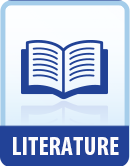|
This section contains 1,443 words (approx. 4 pages at 400 words per page) |

|
In the following essay, Hall examines the poet's station in English society during the Renaissance to belong to, and write for and about, England and its aristocracy.
One cannot discuss the position of poetry in a society without understanding the position of the poet. In Renaissance England the conception of the poet as a seer and divine prophet is borrowed from the ancients and put to frequent use. Sidney says:
Among the Romans a poet was called Vates, which
is as much as a Diviner, Fore-seer, or Prophet, as by
his conjoyned wordes Vaticinium and Vaticinari is
manifest: so heavenly a title did that excellent people
bestow upon this hart-ravishing knowledge.
Thomas Lodge lists such Biblical and church worthies as David, Paulinus, and the "Byshop of Nolanum" as men who were not ashamed to be called poets. He then continues:
It is a pretye sentence, yet not...
|
This section contains 1,443 words (approx. 4 pages at 400 words per page) |

|




